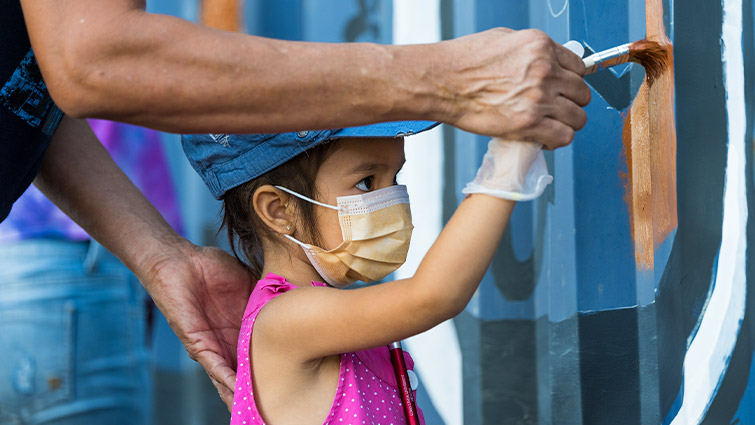We’re Stronger Together
With your help, we can advance education and improve student success in our community.

When it comes to building a better community, we welcome partnership from students, faculty, staff, organizations, and all community members. A number of opportunities are available where you can contribute through service, develop your education, advance research interests, and more.
Join us to make a meaningful difference in our communities.
As a student at LLU, many opportunities are available to enrich your education through service-based learning and direct community engagement.
Through ICP partner programs, you can participate in service learning that builds skills and knowledge, advances research, and impacts people in our community. Learn more.
Through CAPS, you can volunteer for established programs and help provide low-cost resources that meet vital needs in our community. Learn more.
For more information on international opportunities through Loma Linda University Health, check out the Global Health Institute and Students for International Mission Service.
Through our programs, middle and high school students can explore pathways to health careers, make use of educational resources, and find services that help meet their needs.
Discovery helps high school students explore career pathways in health sciences. Students meet health professionals and participate in interactive learning activities. Learn more.
Several CAPS programs offer middle and high school students opportunities to learn about healthcare, connect with mentors, find tutoring, and more. Learn more.
SHiNE promotes health equity in our community through activities and education. Students will engage with topics such as careers and occupations in nature, wellness and sustainability, nature and food sovereignty, hiking and camping planning safety, and more. Learn more.
As part of LLU faculty or staff, you can help prepare the next generation of health professionals and foster a culture of direct community engagement.
As part of our CER committee, academic researchers create, promote, and support a culture of community engaged research. Researchers support education and training, build a community of engaged researchers on campus, and provide resources to students, faculty, and community members. Learn more.
Service learning is an educational opportunity where students can learn the attitudes, values, and skills to be a life-long community-engaged practitioner. LLU faculty and staff play a critical role in helping students appreciate the strengths and needs of their community and find ways to meet those needs. Learn more.
ICP serves as the primary portal for connecting resources to local needs and people to local services. Through our interactive map, faculty and staff can easily discover existing community partnerships and reach out to get involved. Learn more.
Community organizations throughout the region partner with our faculty, staff, and students. If you would like to explore partnership for an ongoing research project, service-learning coursework, or a community service project, please contact us.
Funding opportunities are also available for certain community based organizations.
As a community member, there are many ways to get involved and make an impact locally.
CAPS offers several volunteer opportunities open to anyone in the community, from helping plant a community garden to leading kids in health education. Learn more.
As a community member, you can help by familiarizing yourself with this topic, advocating for policy change, and supporting our community. These resources can help you get started:
One of the most direct ways to get involved in the health of your community is to become a health professional. LLU offers more than 100 programs where you can build a rewarding career in a field that calls to you. Explore programs.
With your help, we can advance education and improve student success in our community.